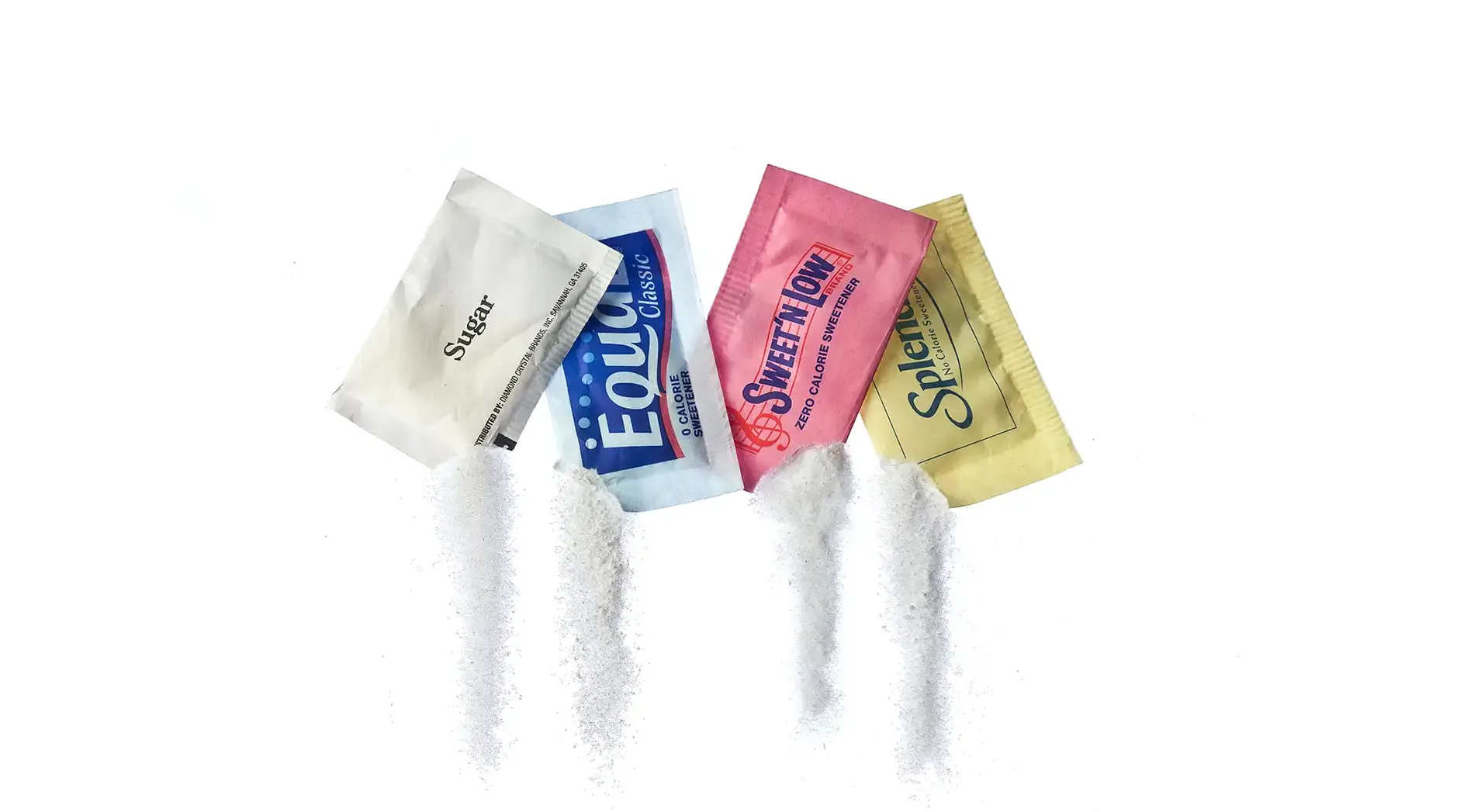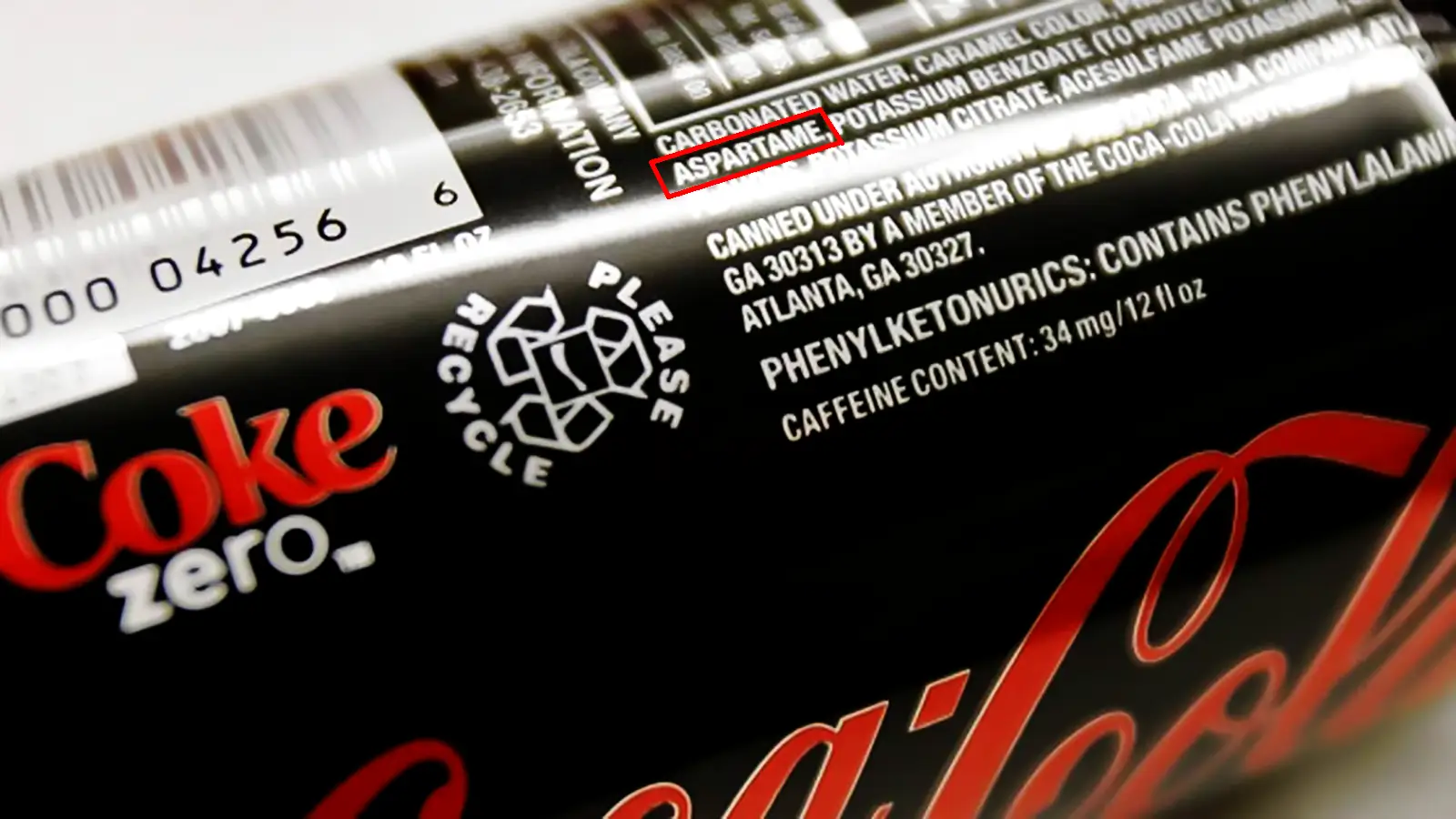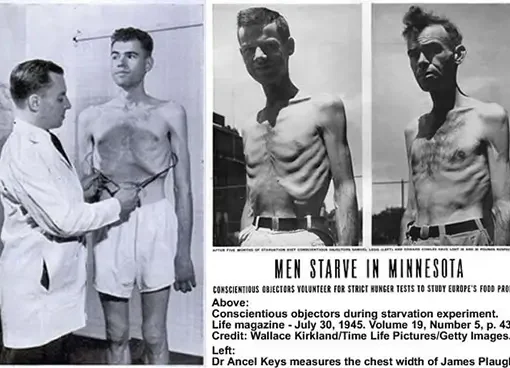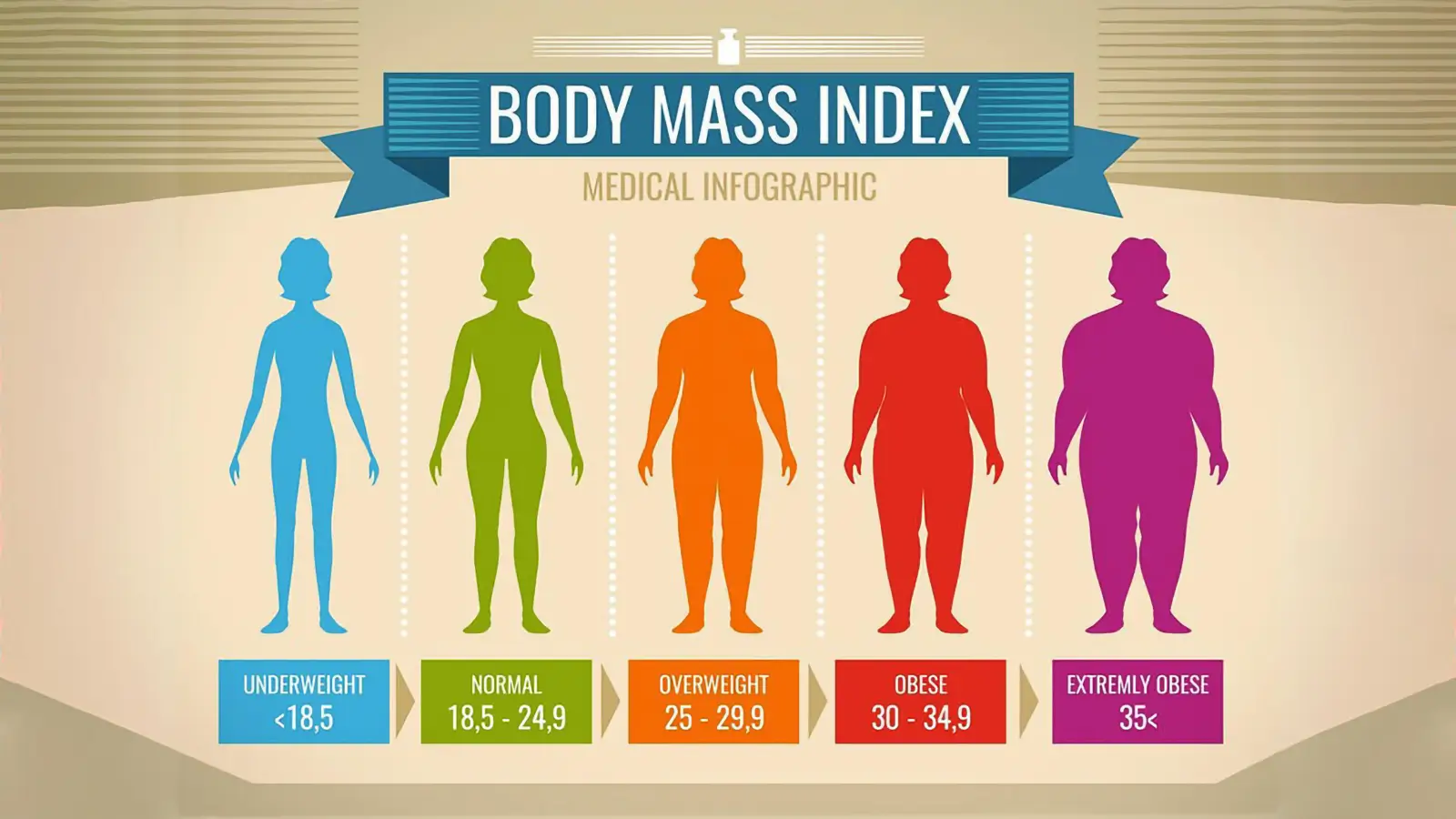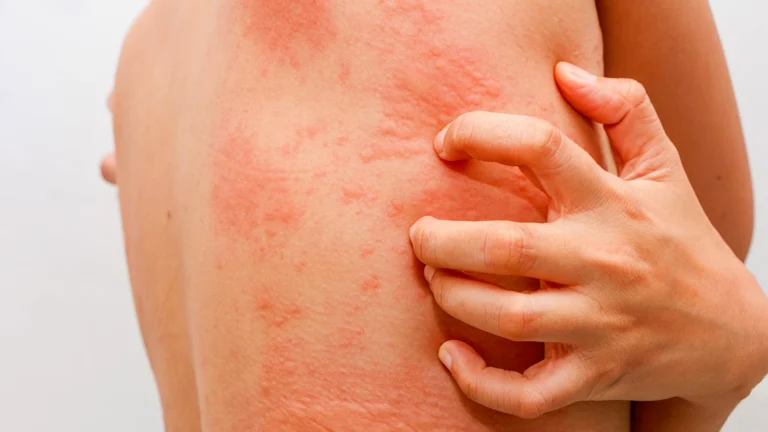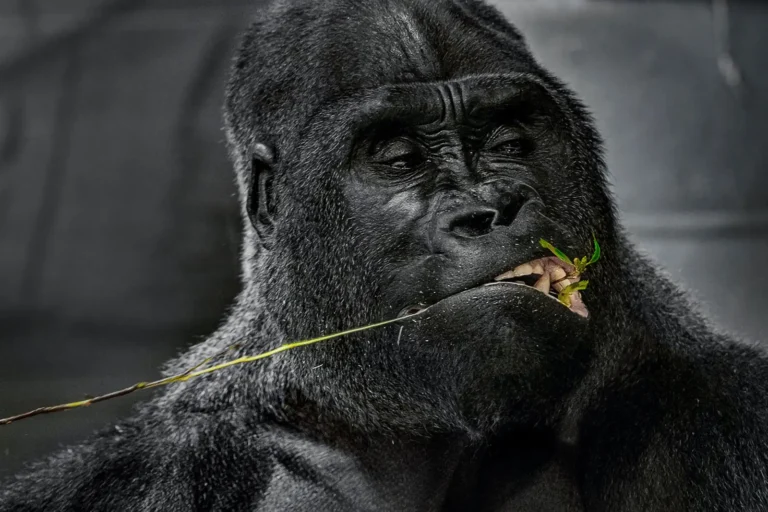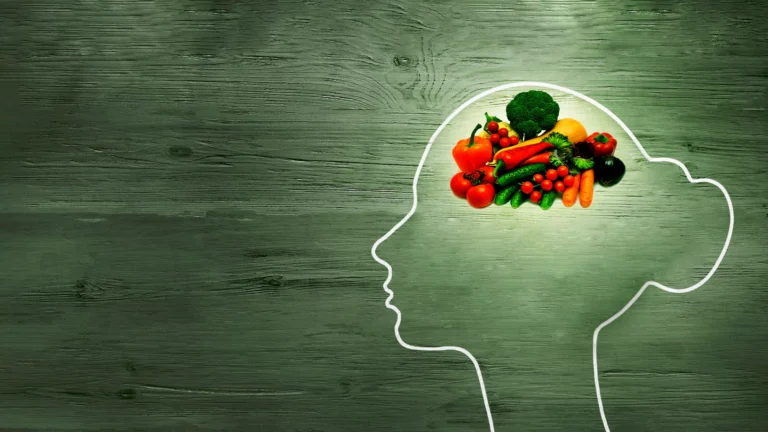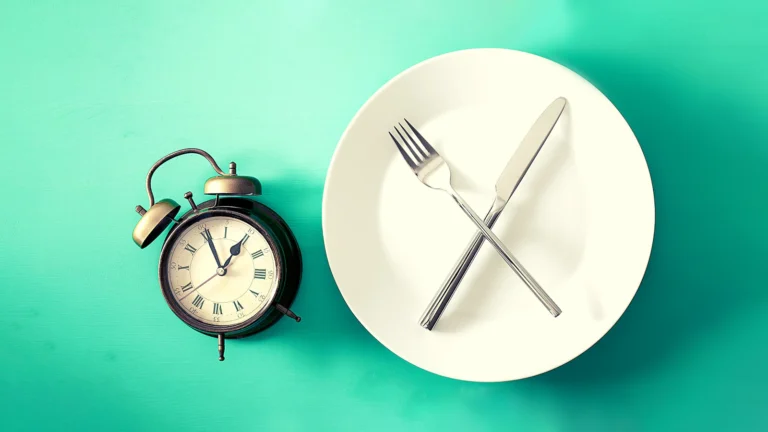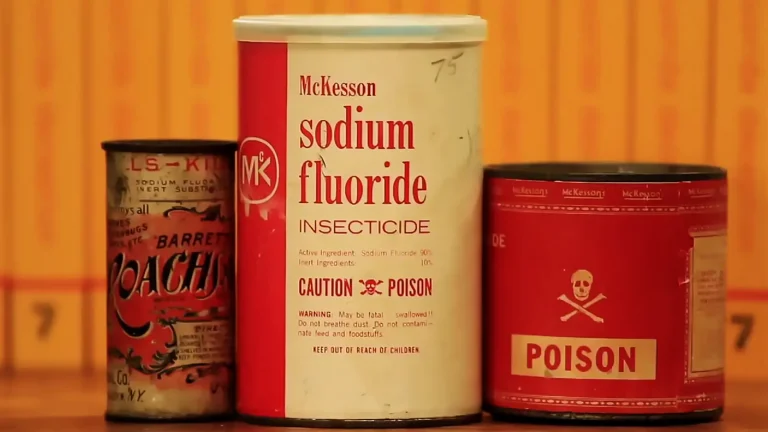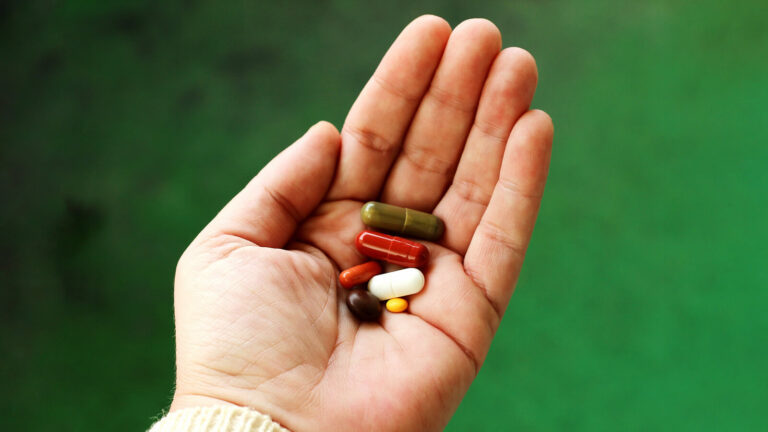Supernormal Stimuli- Trastorno Por Atracón y Regulación del Apetito
Cuando vemos una hamburguesa, es un estímulo supernormal. Los impulsos primarios afectan a nuestro comportamiento forzándonos al trastorno por atracón.
Milos Pokimica
Escrito por: Milos Pokimica
Revisado Médicamente Por: Dr. Xiùying Wáng, M.D.
Actualizado el 4 de agosto de 2023Cuando vemos una hamburguesa, es un estímulo supernormal, o cuando vemos cualquier alimento que no existe en esa forma en la naturaleza especialmente si combina cualquier forma de grasa y carbohidratos o azúcar regular juntos es un estímulo supernormal. Los impulsos o instintos primarios afectan a nuestro comportamiento y a nuestro cerebro reptiliano y básicamente nos controlan más de lo que nos gustaría admitir forzándonos al trastorno por atracón.
Los alimentos extremadamente dulces o grasos que tenemos hoy en día, pero que no estaban presentes en la naturaleza, cautivan el circuito de recompensa del cerebro de forma muy parecida a como lo hacen la cocaína y el juego. Incluso el mero hecho de ver la comida desencadena la respuesta del cerebro. Tan pronto como el alimento llega a la lengua, las papilas gustativas envían señales a distintas zonas del cerebro. El resultado será una respuesta que desencadenará la liberación del neuroquímico dopamina. Comer en exceso con frecuencia alimentos muy apetitosos satura el cerebelo con una cantidad significativa de dopamina que obliga al cerebro a ajustarse en última instancia desensibilizándose, disminuyendo el número de receptores celulares que identifican y responden al neuroquímico. Un nivel elevado y constante de dopamina es la forma de estímulo sobreexcesivo, algo que se denomina estímulo supernormal.
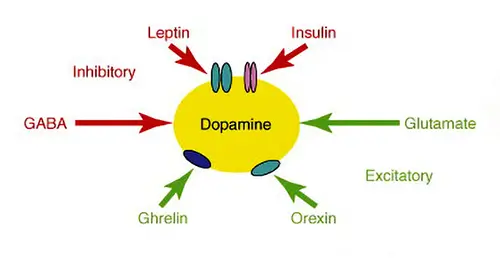
También hay un problema de condicionamiento. Cuando pasas años trabajando para conseguir ese ascenso o pasas años en la universidad y por fin consigues ese trabajo o ese diploma te sientes muy bien. Lleva tiempo y esfuerzo. Pero cuando vas a la nevera y abres una bolsa de patatas fritas también te sientes genial. Sin embargo, hay un problema. En la naturaleza, tendríamos que esforzarnos mucho para conseguir ese bocado, y no estaba salado ni lleno de grasa y azúcar. Por otra parte, cuando queríamos encontrar pareja, teníamos que ser capaces de luchar contra otros machos. Tendríamos que trabajar duro para obtener cualquier recompensa. Nos llevaría mucho tiempo y esfuerzo.
Sin embargo, en la era moderna, no supone ningún esfuerzo. Una llamada telefónica a la pizzería y ya está. Instantáneamente podemos recompensarnos con placer sin necesidad de tiempo ni esfuerzo. Además, existen las drogas, las películas, los videojuegos, el alcohol y el juego. Todas estas cosas son formas de gratificación instantánea. Son muy fáciles de obtener y proporcionan breves ráfagas de placer. Este condicionamiento altera nuestra percepción y reconfigura nuestros centros de recompensa en el cerebro. Los estimulantes ambientales modernos pueden activar respuestas instintivas que evolucionaron antes del mundo moderno. Cuando podemos obtener una estimulación supernormal todo el tiempo sin esfuerzo, nuestro cerebro regula a la baja los receptores, y tenemos un problema, necesitamos más. Además, cuando obtenemos más, el cerebro regula a la baja los receptores un poco más, y volvemos a necesitar más. Se convierte en un comportamiento adictivo antes de que tengamos una sobredosis.
En el libro, Tierra baldía: La ciencia (r)evolutiva detrás de nuestra crisis de peso y forma física, la psicóloga de Harvard Deirdre Barrett analizó muy bien cómo la comida basura provoca estímulos exagerados a los antojos naturales de sal, azúcar y grasas. La cuestión es que la mayoría de la gente normal no es psicóloga y no puede detectar esto en su propio comportamiento.
Los estímulos supernormales también existen en la naturaleza. Cuando los científicos aíslan los rasgos que pueden desencadenar ciertos instintos, como colores o formas o patrones, y luego los aplican a los animales, éstos se comportan de forma extremadamente instintiva y fuera del comportamiento normal. Los instintos no tienen límites. Una vez que los investigadores aíslan el desencadenante instintivo, pueden crear maniquíes muy exagerados que los animales elegirían en lugar de la alternativa realista. Por ejemplo, al ver peces espinosos machos rojos ignorarían a los rivales reales y atacarían réplicas de madera con el vientre pintado de vivos colores, e incluso reaccionarían agresivamente cuando la furgoneta roja de correos pasara por la ventana del laboratorio. Los pájaros cantores abandonarían sus huevos de color azul pálido moteado de gris y se sentarían en maniquíes de color azul fluorescente con lunares negros tan grandes que se resbalarían continuamente. Preferirían alimentar a falsas crías de pájaro con bocas más llenas y rojas que las reales y las crías ignorarían a sus padres para pedir comida a picos falsos con marcas más dramáticas.
Es fácil suponer que este tipo de comportamientos reflejan algún error o manipulación, pero está muy lejos de la realidad. Lo cierto es que se trata de una acción totalmente justificable desde el punto de vista evolutivo y que contribuirá a la supervivencia de la especie. El huevo grande y colorido es un símbolo de salud para un ave, por lo que su instinto es correcto y está condicionado para obligarla a dedicar más tiempo a ir a sentarse sobre un huevo negro con lunares porque ese huevo tiene más posibilidades de éxito en la eclosión. En la naturaleza no hay errores, sólo en la interpretación humana de la naturaleza.
Las aves nunca estarán expuestas a la tecnología, por lo que los estímulos supernormales son un condicionamiento positivo para la supervivencia de la especie. En un entorno moderno impulsado por la tecnología, la historia es diferente. No nos hemos adaptado adecuadamente en el sentido evolutivo a nuestro entorno moderno, y las consecuencias son terribles.
Por ejemplo, la obesidad es una epidemia, y no sólo la obesidad, sino también la mayoría de nuestros otros problemas de salud. Todas las llamadas enfermedades de la opulencia son, en esencia, desadaptaciones fisiológicas. ¿Por qué? Porque las acciones de búsqueda de placer en todas sus formas impulsan la mayor parte de nuestro comportamiento. Nos hará comer incluso cuando no tengamos hambre en busca de placer y satisfacción. Hará que nuestro cerebro se sobreestimule de todas las formas y maneras posibles que se nos ocurran. El problema es significativo a escala poblacional y puede agravarse aún más en individuos específicos que tienen niveles de receptores de dopamina menos expresados. Puede hacerlos susceptibles a comportamientos compulsivos.
Nuestra fisiología no está adaptada para ser bombardeada continuamente con estímulos supernormales, para tener gratificación instantánea en todas las formas, para no sentir nunca hambre, para no tener que hacer nunca ninguna actividad física y para tener un flujo interminable de productos animales, azúcar y grasa. Actuamos impulsiva, emocional e instintivamente como la mayoría de los animales porque estamos condicionados a hacerlo para sobrevivir. Nos guste o no, al final esto tendrá consecuencias duraderas para la salud.
La dependencia psicofísica de estímulos supernormales es real. El ser humano está evolutivamente condicionado para la alimentación extrema debido a la escasez en la naturaleza.
Para todos los animales que existen en la naturaleza, el hambre es el estado normal del ser. Alternativamente, una lucha constante por la comida sería más preciso. Para todos los animales que viven en este planeta, la obsesión por la comida es un trabajo diurno. La mayor parte del tiempo de su vida los animales lo pasan buscando comida. No hay supermercados ni latas de comida preparada. Es la lucha. Además, esa era una condición normal para los humanos incluso hoy en día. Bueno, al menos en la parte de la fisiología corporal.
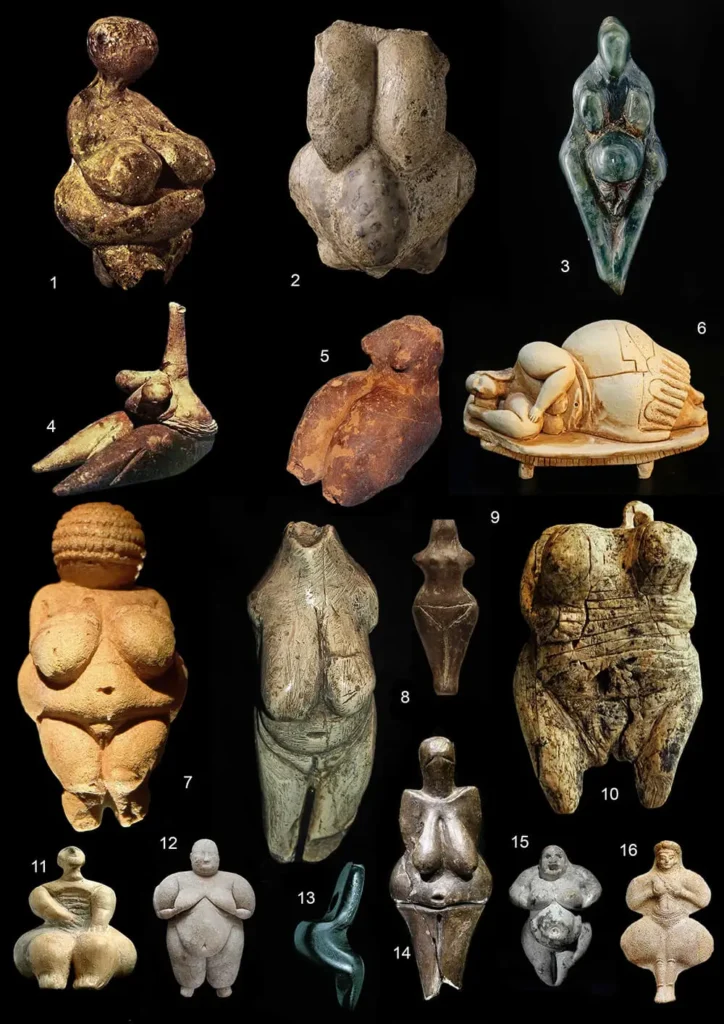
1. Venus de Gagarino, Rusia, 20.000 a.C.; 2. Figurine féminine dite manche de poignard de Brassempouy, 23.000 a.C.; 3. Venus de Losange, Italia, 25.000 a.C.; 4. Venus de Tepe Sarab, Irán, 65.000 a.C.; 5. "Ídolo" neolítico de princesa Hassuna, 65.000-5.700 a.C. Mesopotamia; 6. Venus de Malta, 45.000 a.C.; 7. Venus de Willendorf, Austria, 24.000 a.C.; 8. Venus de Moravany, Eslovaquia, 23.000 a.C. 8. Venus de Moravany, Eslovaquia, 23.000 a.C. 9. Figurilla de cerámica de una mujer, 5.300 a.C., Museo Británico 10. Venus de Hohle Fels, Alemania, 38.000 a.C. 11. Cueva Ghar Dalam, Malta, 5.400 a.C. 12. Catalhohuk, 6.000 a.C. 13. Venus de Monruz, Suiza, 10.000 a.C. 14. Venus de Dolní Vestonice, República Checa, 29.000 a.C. 15. Venus de Anatolia, Turquía, 5.000 a.C. 15. Venus de Anatolia, Turquía, 6.000 a.C. Inanna (Ishtar) Diosa Madre, Mesopotamia 2000 a.C.
Nuestro deseo y comportamiento de búsqueda de placer es lo que nos enferma. La evolución no predijo la electricidad ni los microchips ni los coches. Estamos mal adaptados a nuestro hábitat. Hemos subrayado mecanismos que nos obligan a actuar de forma evolutivamente protectora, como comer comida en exceso. El obstáculo no tan único ahora es que ya no hay escasez. Además, lo que es peor, comemos cosas como carne que no son congruentes con nuestra fisiología. Y lo que es peor, lo comemos en cada comida. Y lo que es aún peor, estamos rodeados de todos los productos químicos tóxicos con los que nunca tuvimos que lidiar en el pasado, y ya no hacemos ejercicio ni nos movemos, y no tenemos suficiente luz solar, y no tenemos relaciones normales con otras especies y otros seres humanos. Dependemos de la tecnología, estamos atrofiados y envenenados. Dependemos de nuestra comida para que sean estímulos supernormales y de todo lo que nos rodea para que sean estímulos supernormales. Lo supernormal es la nueva normalidad. Ahora todo tiene que ser supernormal para ser normal. Desde los videojuegos hasta las películas, pasando por las drogas, la adicción a los juegos, la adicción al porno y el sexo y la violencia en cada fotograma. Comer col rizada ya no es para nosotros. Comer fruta ya no es para nosotros. La fruta era antaño el mayor capricho que podíamos encontrar en la naturaleza. El postre supremo. ¿Qué es hoy la fruta? El híbrido derivado de la cría selectiva para ser más dulce. ¿Habíamos probado alguna vez en nuestra vida la auténtica fruta silvestre sin genes alterados? Incluso esa variedad excesivamente hibridizada no es rival para el azúcar refinado puro, así que vamos a beber agua azucarada coloreada como la Coca-Cola y los refrescos. azúcar refinadoasí que vamos a beber agua azucarada coloreada como la Coca-Cola y los refrescos.
Referencias:
Pasajes seleccionados de un libro: Pokimica, Milos. Go Vegan? Examen de Ciencias de la Parte 1. Kindle ed., Amazon, 2018.
Contenidos Relacionados
¿Tienes alguna duda acerca de la nutrición y la salud?
Me encantaría saber de usted y responderlas en mi próxima publicación. Agradezco sus aportes y opiniones y espero tener noticias suyas pronto. También te invito a síguenos en Facebook, Instagram y Pinterest para más contenidos sobre dieta, nutrición y salud. Puedes dejar un comentario allí y conectar con otros entusiastas de la salud, compartir tus consejos y experiencias, y recibir apoyo y ánimo de nuestro equipo y nuestra comunidad.
Espero que este post le haya resultado informativo y ameno y que esté preparado para aplicar los conocimientos adquiridos. Si le ha resultado útil, por favor compártelo con tus amigos y familiares que también podrían beneficiarse de ella. Nunca se sabe quién puede necesitar orientación y apoyo en su camino hacia la salud.
– También Te Puede Interesar –

Aprenda Sobre Nutricion
Milos Pokimica es doctor en medicina natural, nutricionista clínico, escritor sobre salud médica y nutrición y asesor en ciencias de la nutrición. Autor de la serie de libros Go Vegan? Revisión de la Ciencia, también dirige el sitio web sobre salud natural GoVeganWay.com.
Descargo De Responsabilidad Médica
GoVeganWay.com le ofrece reseñas de las últimas investigaciones relacionadas con la nutrición y la salud. La información proporcionada representa la opinión personal del autor y no pretende ni implica sustituir el asesoramiento, diagnóstico o tratamiento médico profesional. La información proporcionada tiene fines informativos únicamente y no pretende sustituir la consulta, el diagnóstico y/o el tratamiento médico de un médico o proveedor de atención médica calificado.NUNCA ignore el CONSEJO MÉDICO PROFESIONAL O RETRASAR la BÚSQUEDA de TRATAMIENTO MÉDICO a CAUSA DE ALGO QUE HAYA LEÍDO EN O accesibles a TRAVÉS de GoVeganWay.com
NUNCA APLICAR CUALQUIER cambio de ESTILO de vida O CAMBIOS EN su totalidad COMO UNA CONSECUENCIA DE ALGO QUE HA LEÍDO EN GoVeganWay.com ANTES de CONSULTAR con LICENCIA PROFESIONAL MÉDICO.
En el caso de una emergencia médica, llame a un médico o al 911 inmediatamente. GoVeganWay.com no se recomienda ni aprueba ninguna de los grupos, las organizaciones, las pruebas, los médicos, productos, procedimientos, opiniones u otra información que pueda ser mencionado en el interior.
Selecciones del editor –
Milos Pokimica es doctor en medicina natural, nutricionista clínico, escritor sobre salud médica y nutrición y asesor en ciencias de la nutrición. Autor de la serie de libros Go Vegan? Revisión de la Ciencia, también dirige el sitio web sobre salud natural GoVeganWay.com.
Últimos artículos -
Planta De Noticias Basado En
-
Vegan Avocado Lime Ice Cream
on junio 19, 2025
-
6 Vegan Chia Pudding Recipes
on junio 19, 2025
-
Juicy Marbles & Friends Launches Plant-Based Cod Filet
on junio 19, 2025
-
Vegans ‘More In Line’ With Nutritional Recommendations, Says Study
on junio 19, 2025
-
How To Make Easy Homemade Tahini
on junio 19, 2025
-
‘I Tried A Vegan Carnivore Diet – Here’s What It Was Like’
on junio 18, 2025
-
What Is The Sugar Diet? The Truth Behind The Trend
on junio 18, 2025
Top Noticias De Salud — ScienceDaily
- Microscopic heist: How lung bacteria forge weapons to steal iron and surviveon junio 19, 2025
Researchers investigating the enigmatic and antibiotic-resistant Pandoraea bacteria have uncovered a surprising twist: these pathogens don’t just pose risks they also produce powerful natural compounds. By studying a newly discovered gene cluster called pan, scientists identified two novel molecules Pandorabactin A and B that allow the bacteria to steal iron from their environment, giving them a survival edge in iron-poor places like the human body. These molecules also sabotage rival bacteria […]
- How can we make fewer mistakes? US Navy invests $860k in placekeepingon junio 19, 2025
With $860K in Navy funding, MSU psychologists are developing tools to spot people who can handle complex tasks under pressure. The key? Mastering “placekeeping” staying focused and accurate even when sleep-deprived or interrupted.
- AI sniffs earwax and detects Parkinson’s with 94% accuracyon junio 18, 2025
Imagine diagnosing Parkinson s disease not with pricey scans or subjective checklists, but with a simple ear swab. Scientists in China have developed a promising early screening method that detects Parkinson s from subtle changes in the scent of ear wax yes, really. By analyzing specific volatile compounds in ear wax and feeding that data into an AI-powered olfactory system, they achieved 94% accuracy in identifying who had the disease. If expanded successfully, this low-cost, non-invasive […]
- This tiny patch could replace biopsies—and revolutionize how we detect canceron junio 17, 2025
A new nanotechnology breakthrough may soon eliminate the need for painful biopsies. Scientists have developed a patch filled with nanoneedles thinner than a human hair that can painlessly extract molecular data from tissues without removing or damaging them. This enables real-time disease monitoring, particularly for conditions like brain cancer and Alzheimer s, and could radically change how doctors diagnose and track disease. The patch works quickly, integrates with common medical tools, and […]
- MIT uncovers the hidden playbook your brain uses to outsmart complicated problemson junio 17, 2025
When faced with a tricky maze task involving hidden information, humans instinctively toggle between two clever mental strategies: simplifying in steps or mentally rewinding. MIT researchers showed that people shift methods based on how reliable their memory is echoed by AI models mimicking the same constraints.
- Black coffee, longer life: The science behind your morning perkon junio 17, 2025
Coffee might be doing more than fueling your morning routine it could be extending your life. A large-scale study by Tufts University suggests that drinking one to three cups of caffeinated coffee daily is associated with lower overall mortality, particularly from cardiovascular causes. But there s a catch: the benefits drop when sugar and saturated fats like cream are added in excess.
- The invisible killer: PM 1 pollution uncovered across Americaon junio 16, 2025
A groundbreaking 25-year analysis using satellite technology has now mapped PM 1 levels across the U.S., uncovering how wildfires, vehicle emissions, and industrial byproducts have shaped the air we breathe. Although regulations have improved air quality over time, rising wildfire activity poses a growing challenge. This new dataset gives scientists and regulators a vital tool for targeting the most harmful pollutants and protecting public health.
PubMed, #Dieta vegana –
- Dietary pattern and nutritional assessment in a cohort of mothers identified by neonatal screening for cobalamin deficiency in offspring: an Italian single center experienceon junio 19, 2025
During pregnancy, nutrient requirements increase while deficiencies can significantly affect pregnancy outcomes. Deficiencies may result from inadequate dietary intake, impaired absorption, or restrictive diets. This study aimed to retrospectively assess the nutritional status and dietary intakes in a cohort of mothers whose newborns were identified with vitamin B12 deficiency of maternal origin through Newborn Screening. Between 2021 and 2024, 107 newborn-mother dyads with altered biomarkers […]
- Intermittent fasting strategies and their effects on body weight and other cardiometabolic risk factors: systematic review and network meta-analysis of randomised clinical trialson junio 18, 2025
CONCLUSIONS: Minor differences were noted between some intermittent fasting diets and continuous energy restriction, with some benefit of weight loss with alternate day fasting in shorter duration trials. The current evidence provides some indication that intermittent fasting diets have similar benefits to continuous energy restriction for weight loss and cardiometabolic risk factors. Longer duration trials are needed to further substantiate these findings.
- Plant-Based Diet and Risk of Iron-deficiency Anemia. A Review of the Current Evidence and Implications for Preventive Strategieson junio 17, 2025
PURPOSE OF REVIEW: This review provides a comprehensive overview of iron metabolism, emphasizing the influence of dietary patterns-particularly vegetarian and vegan diets-on iron status and associated health outcomes.
- Protein Intake and Protein Quality Patterns in New Zealand Vegan Diets: An Observational Analysis Using Dynamic Time Warpingon junio 13, 2025
Background/Objectives: Inadequate intake of indispensable amino acids (IAAs) is a significant challenge in vegan diets. Since IAAs are not produced or stored over long durations in the human body, regular and balanced dietary protein consumption throughout the day is essential for metabolic function. The objective of this study is to investigate the variation in protein and IAA intake across 24 h among New Zealand vegans with time-series clustering, using Dynamic Time Warping (DTW). Methods:…
- Diet and nutrition in cardiovascular disease prevention: a scientific statement of the European Association of Preventive Cardiology and the Association of Cardiovascular Nursing & Allied Professions…on junio 12, 2025
What we eat is a cornerstone of cardiovascular disease (CVD) prevention, but health professionals may not have a clear understanding of the current evidence-based research to underpin eating habits and recommendations. This study aims to appraise existing evidence-based research on the importance of diet on CVD risk biomarkers, specifically, the effects of dietary patterns, specific foods, and constituents including vitamins/minerals and plant-derived bioactive compounds on CVD risk. […]
Publicaciones aleatorias –
Publicaciones destacadas -

La última versión desde PubMed, #Dieta basada en plantas –
- Specialist Savvy Versus Generalist Grit: Elucidating the Trade-Offs in Adaptive Dietary Ecomorphology Amongst African Green and Bush Snakespor Hanlie M Engelbrecht on junio 19, 2025
Kinetic feeding bones of macrostomatan Afrophidian snakes enable them to consume diverse prey types. While significant research has focused on functional feeding morphology in snakes, it often emphasizes broad taxonomic comparisons or species with distinct dietary ecologies. There is limited knowledge of how small variations in prey type composition may influence feeding morphology among closely related species sharing similar ecological niches. African Green and Bush Snakes (Philothamnus) […]
- Chia (Salvia hispanica L.) Seed Oil Supplementation to the Diet: Effects on in Vitro Rumen Fermentation Characteristics and Lipid Biohydrogenationpor Selma Büyükkılıç Beyzi on junio 19, 2025
The study investigated the effects of chia seed oil supplementation on the diet with different levels of in vitro ruminal biohydrogenation and fermentation. The treatment groups were control (no additional oil) or the addition of 10, 20 and 30 g/kg of chia seed oil in the diet as DM based. The treatment groups were incubated using a batch culture technique, and the fermentation terminated after 6, 12, and 24 h. The biohydrogenation rate of unsaturated fatty acids varied between 71% and 98% […]
- Plant-based milk alternatives: can they replace the iodine from UK cow’s milk?por Katie Nicol on junio 18, 2025
Current food systems pose risks to both population and environmental health. Reducing the intake of animal-based foods, such as dairy products, and increasing consumption of plant-based foods align with priorities for addressing climate change and promoting overall health. Plant-based alternatives to cow’s milk can be readily substituted for cow’s milk without altering meal patterns and food habits, making them a popular choice among those reducing animal-product consumption. However,…
- Diet quality, unprocessed plant-based foods, and vascular function in adults with CKD: Secondary analysis of a pilot randomized clinical trialpor Luis Perez on junio 18, 2025
CONCLUSION: Despite overall low diet quality, higher consumption of unprocessed, plant-based energy and nutrients was associated with lower arterial stiffness. Future studies are needed to explore these associations in larger cohorts with CKD and the effects of diet quality interventions.
- Biaxial testing and sensory texture evaluation of plant-based and animal deli meatpor Skyler R St Pierre on junio 18, 2025
Animal agriculture is one of the largest contributors to global carbon emissions. Plant-based meats offer a sustainable alternative to animal meat; yet, people are reluctant to switch their diets and spending habits, in large part due to the taste and texture of plant-based meats. Deli meat is a convenient form of protein commonly used in sandwiches, yet little is known about its material or sensory properties. Here we performed biaxial testing with multiple different stretch ratios of four…
- Intermittent fasting strategies and their effects on body weight and other cardiometabolic risk factors: systematic review and network meta-analysis of randomised clinical trialspor Zhila Semnani-Azad on junio 18, 2025
CONCLUSIONS: Minor differences were noted between some intermittent fasting diets and continuous energy restriction, with some benefit of weight loss with alternate day fasting in shorter duration trials. The current evidence provides some indication that intermittent fasting diets have similar benefits to continuous energy restriction for weight loss and cardiometabolic risk factors. Longer duration trials are needed to further substantiate these findings.

